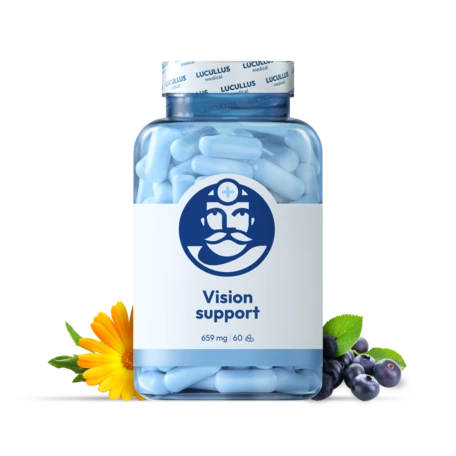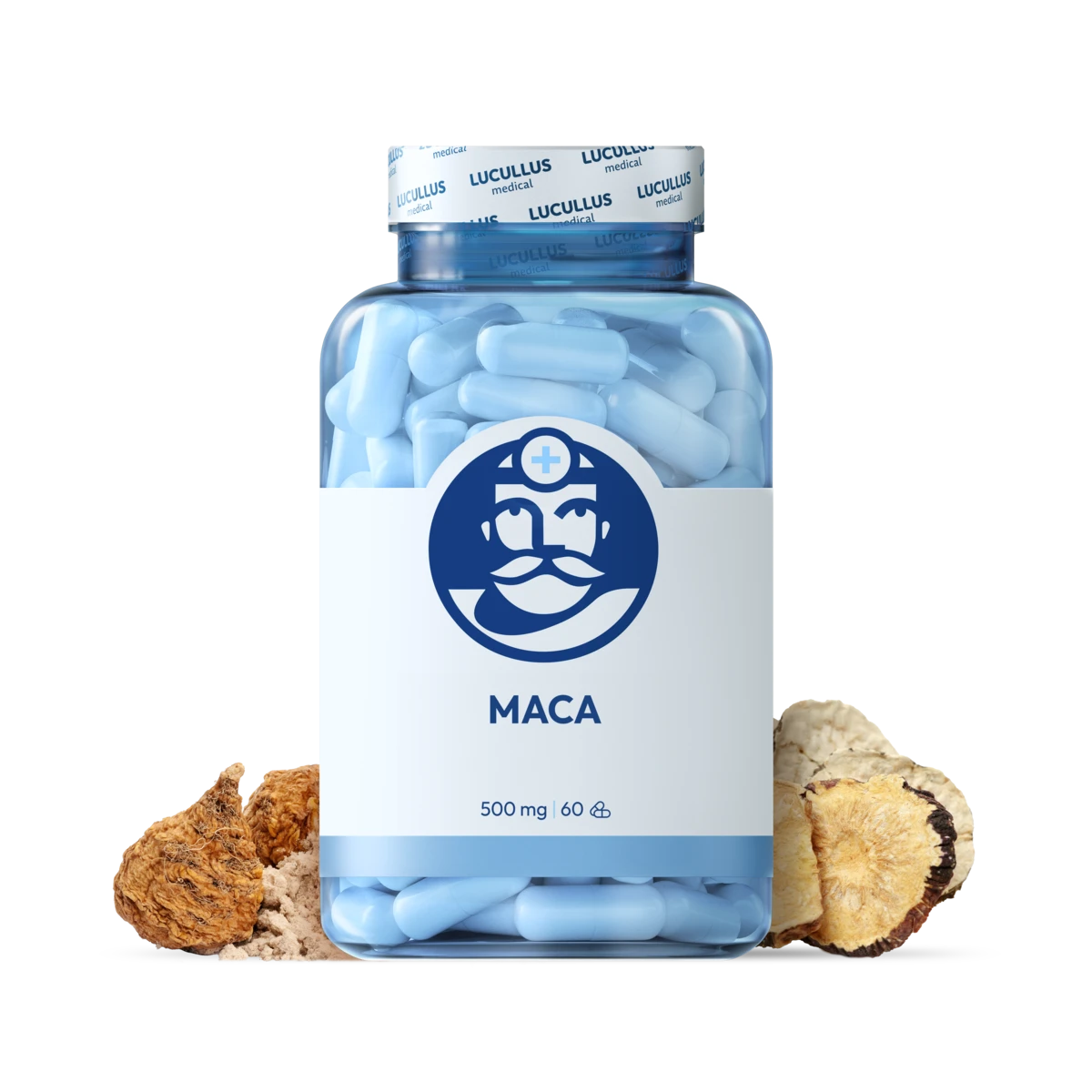
Surprisingly Resilient Maca - Peruvian Cress
This remarkable plant (Lepidium mayenii) from the Peruvian Andes, where it is grown at extreme altitudes (4000 m a.s.l.). It is incredibly resilient and can survive and grow in conditions where most other plant species would not survive, such as low temperatures, strong winds, and intense UV radiation. Its ability to adapt to harsh environments enriches it with nutrients and substances that positively impact the human body, enhancing resistance to both physical and mental stress.

The First of Vitamins - B1
Maybe it's burnout ... that's the current description of the state when we feel different. When the coffee we loved no longer works and in the afternoon we are overwhelmed by unbearable fatigue, when in the evening we have no strength for anything, neither for sports nor for friends. And certainly not for another day at work. A nutritionist would describe this state with further findings of our diet with the words - „ You have a lack of thiamine (B1), which is essential for the proper functioning of the nervous system and the conversion of food into energy. Your diet is full of processed carbohydrates, but almost without B1. And when the body doesn't have enough thiamine, you can feel fatigue, forgetfulness, irritability, and even anxiety. And caffeine? It depletes thiamine in the body even more!“ We certainly wouldn't think that this state could be caused by a “triviality”. After all, many of us don't register thiamine, I admit it was also my case. This first of the discovered vitamins in 1912 was named by the Polish biochemist Funk with the term vita (necessary for life), amine (substances that contain nitrogen). Since then, it has gained more names, like aneurin, and for 25 years we have called it thiamine. It is essential, meaning it cannot be synthesized and must come from the diet. It sounds almost frightening that without it we wouldn't survive longer than a few days, at most weeks. This is because the body cannot store it for long and it is necessary to ensure its intake regularly, as it is irreplaceable for the proper functioning of the organism. On the contrary, its abundance helps improve concentration and memory.

Vitamin A - and I see...
Vitamin A - Retinol, was discovered in 1916. But it was not until 15 years later that its chemical structure was determined. And it took another 15 years before we learned to produce it synthetically (in the form of acetate). It is relatively rare in dietary supplement stores, which is strange because its deficiency can lead to night blindness.

Is Collagen Only for Older People?
Collagen is essentially a protein that the human body can produce by itself, as it is necessary for the proper functioning of cartilage, glands, joints, and even bones, muscles, and skin. Out of all the proteins in our body, collagen is the most abundant (up to 30%). Unless you are addicted to social media, you really don't need collagen until you suddenly start feeling pain in your tendons, knees, ligaments... Because if you have a proper, balanced diet, and enough exercise, your body should produce enough. However...

Cordyceps sinensis with an incredible life cycle
Have you heard about this fascinating fungus with its peculiar appearance and way of existence? The names „Chinese caterpillar, Himalayan gold or mushroom of longevity“ do not reveal much ...

Is iodine a necessity? ... Iodine - Kelp
Iodine is a trace element, with an interesting role in health, which we associate with the thyroid gland. It occurs naturally in the marine environment and one of the richest natural sources of iodine is kelp seaweed, also known as "Bladderwrack, Norwegian Laminaria," which has been used in traditional medicine and cuisine for centuries. Kelp can absorb large amounts of iodine directly from the ocean. The body needs iodine to produce thyroid hormones, without which much more would not work ... our metabolism would not function properly, we would have little energy, and our minds would be dull.






























